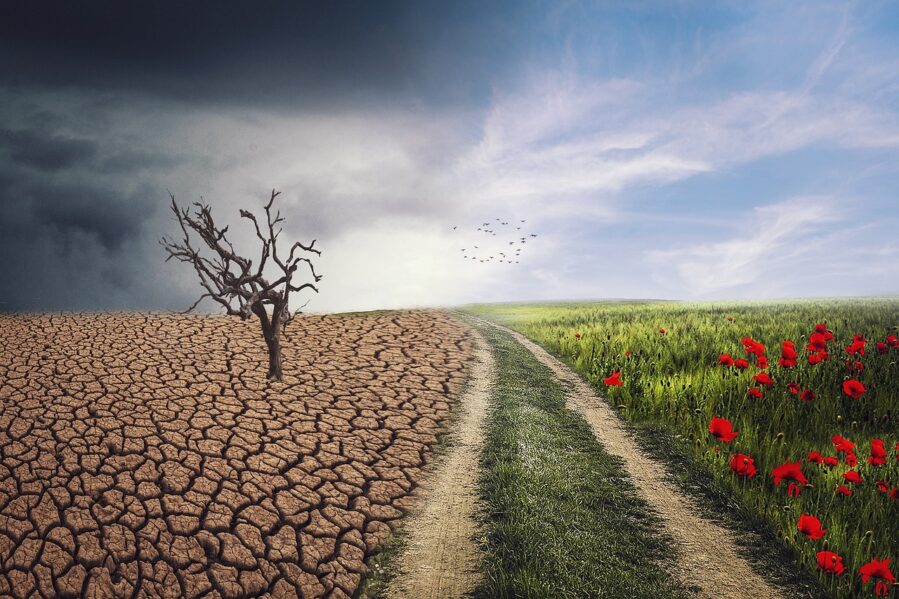The world’s richest people cause most of the global warming we see today, according to new research published in Nature Climate Change on May 7, 2025.
The study shows the richest 10% of people caused two-thirds of warming since 1990. The top 1% alone caused one-fifth of that warming. This research is the first to clearly link wealthy people’s emissions to specific extreme weather events.
“Our study shows that extreme climate impacts are not just the result of abstract global emissions, instead we can directly link them to our lifestyle and investment choices, which in turn are linked to wealth,” explains lead author Sarah Schöngart, who is currently associated with ETH Zurich.
Using computer models that combine economic data and climate simulations, the researchers tracked emissions from different income groups. They found shocking results: the richest 1% of people contributed 26 times more than average to monthly heat waves and 17 times more to Amazon droughts.
The problem gets worse when looking at specific regions. Just the richest 10% of people in the United States and China each caused two to three times more heat waves in vulnerable areas like the Amazon, Southeast Asia, and southern Africa—places that have hardly contributed to climate change themselves.
These patterns show up inside countries too. In the United States, the richest 10% cause 3.1 times more warming than the average American, and 17 times more than the global average person.
The study includes a striking what-if scenario: if everyone on Earth polluted like the poorest half of people, we would have seen almost no new warming since 1990. But if everyone polluted like the richest 1%, temperatures would have jumped by 6.7°C since 1990 – a climate disaster.
“If everyone had emitted like the bottom 50% of the global population, the world would have seen minimal additional warming since 1990,” says coauthor Carl-Friedrich Schleussner, who leads the Integrated Climate Impacts Research Group at IIASA. “Addressing this imbalance is crucial for fair and effective climate action.”
The study looks beyond just what rich people buy. It also examines how their investments create emissions. When wealthy people invest in companies that make goods and services, those investments add significantly to their carbon footprint.
These findings point to possible solutions. The researchers suggest that a global wealth tax could help fight climate change by reducing the emissions gap between rich and poor.
The study also shows an unfair pattern in who suffers from climate change. Poor regions face the worst impacts from emissions made mostly by rich people. The Amazon region shows the clearest example, with a threefold increase in extreme drought risk compared to 1990.
“This is not an academic discussion – it’s about the real impacts of the climate crisis today,” adds Schleussner. “Climate action that doesn’t address the outsize responsibilities of the wealthiest members of society, risks missing one of the most powerful levers we have to reduce future harm.”
The research comes when money for climate adaptation in vulnerable regions is “minuscule compared with the assessed needs.” The authors suggest their findings could support new policies targeting wealthy individuals to help fill these funding gaps.
The research is significant because it measures how emissions from rich people in one country cause weather problems in distant places. What the wealthiest people buy and invest in can create extreme weather thousands of miles away, showing how connected our climate system is.
The researchers are careful about their claims. They acknowledge that their study doesn’t assign “full responsibility for resulting climate impacts, nor does it determine fair emission levels for any income group.”
Still, this work represents an important step forward. The authors argue their approach “can inform global climate action and enhance climate justice” at a time when both economic and climate gaps are growing wider.
This research came from Schöngart’s project in the Young Scientists Summer Program at IIASA in 2024, which earned her the IIASA Levien award.
If our reporting has informed or inspired you, please consider making a donation. Every contribution, no matter the size, empowers us to continue delivering accurate, engaging, and trustworthy science and medical news. Independent journalism requires time, effort, and resources—your support ensures we can keep uncovering the stories that matter most to you.
Join us in making knowledge accessible and impactful. Thank you for standing with us!


The irresponsibility of the rich towards the planet’s environment is not going to change until the 99% who suffer the consequences or their greed and their selfishness decide to make the life of these disconnected people more and more difficult within the general society. Shaming and denouncing them every time they make a public appearance should make them feel the full weight of what their behavior causes to the masses. Shame can be a powerful motivator for change and it’s about time that the rich feel that they personify the worst of humanity in terms of environmental indifference.